 One INET project is to “reconnect the teaching of economics with the working of the actual economy,” which is to begin with a reform of the undergraduate curriculum. For this purpose, a two-legged task force was established, with Robert Skidelsky chairing the British committee and Perry Mehrling the American one. Both committees reported on their progress at the Bretton Woods conference (see the videos of the sessions)
One INET project is to “reconnect the teaching of economics with the working of the actual economy,” which is to begin with a reform of the undergraduate curriculum. For this purpose, a two-legged task force was established, with Robert Skidelsky chairing the British committee and Perry Mehrling the American one. Both committees reported on their progress at the Bretton Woods conference (see the videos of the sessions)
The purpose here is not to discuss the task force’s proposals. Nor is it to argue for the reintegration of history of economics to the curriculum. Some historians and economists alike have repeatedly advocated such reform since the current crisis broke out. The only problem being that the “history” economists have in mind doesn’t seem to be the “history” historians are writing. But I shall elaborate on this in future posts.
My concern is that, while I have something to say about reforming economic education as a former student and a teacher, I’m not sure what my contribution could be as a historian – assuming that economists need historical insights to devise their reforms.
Perry Mehrling began his Bretton Woods talk with the idea that “things (e.g. economic education) are the way they are for a historical reason and they stay the way they are for an institutional reason.” He then proceeded to a one-slide account of the development of american economic education as a methodological shift from the “T Ely” way of doing and teaching economics to the “Samuelson” way, before jumping to the present state of affairs and possible reforms. The task force seems to have a documented view of where we are (in the US, as well as in the UK), but very little notion of how we got there, and why. There are a few elements though that historians are – or rather, I’m afraid, should be – able to throw into the discussion.

→ On the idea of helping undergraduates grasp reality (with both hands, ten tentacles or a prehensile tail). What are the similarities and differences between our present situation (social and economic context, students’ demands, criticisms against the economic profession) and the crises economics have experienced over the past decades? In the seventies, for instance, introductory courses were substantially reformed in response to a demand for greater relevance emanating from students who, as it happened, remained worryingly illiterate at the end of their curriculum. This is what Jean-Baptiste Fleury relates in a recent paper on the origins of the “economics-made-fun” movement. “Relevant” meaning relevant for the then burning real world issues such as racial discrimination, the energy crisis, etc. He details economists’ reactions, from the institutionalization of the emerging field of economic education, through the creation of the Journal for Economic Education in 1969, to the decision to focus introductory courses on the application of a limited set of economic principles to relevant issues. Several textbooks illustrating this “issue-oriented approach” were published. In the eighties and nineties, professionals continued to complain that economics lacked relevance, e.g. lacked connection to observation and empiricism, and for students, lacked reference to situations of the everyday life. As the concentration of the publishing industry entailed a standardization of introductory textbook, pedagogical innovations flourished in the kind of popularization books which had already proved successful in other fields such as physics or biology. This “economics-made-fun” movement, which culminated with the publication of Freakonomics, was an inspiration for those economists who worried about the apparent decrease in the enrollment in economic major and who, by the end of the nineties, attempted to reform the curriculum again (rather unsuccessfully).
Today’s reformers may find some interest in a clear identification of what past challenges to undergraduate education and past responses have been. Though I’m not familiar with the JEE literature, I wonder whether a review of the knowledge produced in its issues would provide a sense of what the forces driving the evolution of economic education have been in the past thirty years. Finally, there’s no explicit mention of these pop-economics books in the current discussion. Is it because this literature is considered already integrated to undergraduate education? Or irrelevant?

→ One way to think about economic education is to identify the questions we want our students to answer at the end of our courses. In other words, what the appropriate exams and assignments should be like. Hence this question to historians: how did the form of econ exams evolve over time (and if you’re in a cynical mood, is economists’ claim that their science is progressive warranted, are today’s students able to answer an exam given by Marschak in the twenties, one given by Samuelson in the forties, or the tricky and much reality-based questions Friedman was used to asking in the fifties ad sixties.) A parallel set of questions deals with the practices of past education leaders, from Friedman to Solow. How did those famous economists teach? What made their success? During the INET session, Axel Leijonhufvud pointed to those economists who could not do or teach theory without history of thought, such as Jacob Viner. If there are any lectures notes in the archives, they might be worth studying.

→ Another important issue is that of textbooks/ teaching material. Some proposals have been made for the development of online material, videos, reading lists and text anthologies. And when Merhling mentions Samuelson as the one who changed the way economics was not only made but also taught, Economics pops up in our mind. Except that, as explained by Samuelson and contextualized by Yann Giraud, Economics was not written for an economic audience. In the late forties at MIT, most engineering and science students had Ec11 and Ec12 (introductory econ) on their curriculum. Made compulsory. They hated it, and Ralph Freeman, then chairman of the department of economics, asked Samuelson to write a textbook to correct this. Yann and Loïc Charles are currently investigating how, during the Great Depression, visuals such as Neurath pictorial statistics were used as a major vehicle to spread information and opinion on economics in textbooks, professional periodicals and by US administrations. Much more narratives of that kind is needed on how and why influential textbooks were written, and how they spread.

→ Finally, econ education everywhere in the Western world seems nowadays modeled on the curricula proposed by leading American econ departments, in particular MIT, Chicago and Harvard (unless you have an alternative narrative). Have historians anything to say about how economic education was developed at these leading institutions?
On Chicago, a quick search brought a much more meager harvest than I expected. A few reminiscences (for instance Deidre McCloskey’s remark that the undergraduate and graduate curricula were strictly separated), vague statements on the large number of students accepted in both programs, and on the thus large number of students failing exams. The importance of the graduate price theory course taught by Friedman, then Becker, then Friedman again, to socialize the Chicago graduate into the proper way of doing economics. Friedman as a teacher. And thanks to Ross Emmett, the role of the workshop system in ensuring that the right tools were used the right way in thesis writing and research. Fragments.
On MIT, I know a few stories. Some of which make sense to understand the current state of affairs.
At MIT, before 1965, there was no economic major. No undergraduate students in economics. Undergraduate students took 80% scientific or engineering courses, and 20% humanities courses, with a core humanities sequence during the first two years, and a major sequence in economics (or psychology, or political science, or literature or else) in the subsequent two years. A few dozens students enrolled in a course XIV, a sort of double major which allowed students to pursue a standard science or engineering curriculum AND an economic undergraduate major. 50%-50%. Three options were offered: general economics, labor relations, and quantitative economics (from statistics to Operation Research). According to the faculty reports, none of these students subsequently chose to specialize in economics. They either became engineers, OR specialists or worked for a trade union. Therefore, the curriculum economics undergraduates were presented with in the next decades, the lectures Lawrence Summers attended as an MIT student in 1973 or 1974 were designed to introduce physicists and engineers to social issues. The tools, the methods and the approach were designed for them.
The best way to get greater exposure to economics at MIT in the fifties an sixties may have been to go to the business school, where economists and business scientists were working hand in hand (they were located in the same building at the far end of the campus, away from other hard and social sciences): people at the Sloan business school were applying new methods for quality control and transportation optimization. They were obsessed with trading and they developed models to account for stock behavior. They also recruited Franco Modigliani.
At MIT in the sixties, elementary macro was taught before elementary micro. The order was reversed in 1974 when, in the context described above by Jean-Baptiste and in response to repeated students’ protests and petitions, introductory economics courses were reformed under the leadership of Peter Temin. It was decided that “micro will precede macro..so as to introduce economics through problems that are most apparent to the non economist and to the engineer in particular.”
At MIT, in the late sixties, the use of problem sets was developed. In 1968, the “Committee on the undergraduate economics program” chaired by Duncan Foley reported that :
“Students at the Institute seem to prefer subjects in which homework assignments are required to be turned in at frequent intervals. There is also some evidence that they work more consistently under such arrangement. Therefore, it seems desirable that “problem sets” be required frequently – probably every other week. Student reaction to the workbook has been negative for the most part.
It is important that these problem sets do not degenerate into routine mechanical algrebraic exercises. Some of the problem sets may well be manipulation of models, but others should be short essays on the sort of questions which are used for examination.”
Six years later, in his revision of introductory courses, Temin suggested that:
“The use of problem sets will be increased. While problems are used currently in 14.01 and 14.02, there are only a few problems sets given during each term. In the revised courses, there will be problem sets every week or two weeks. These problems will provide practice in the use of economics to analyze particular questions and an opportunity for the student to think about some of the problems raised in the readings outside of class time. They are the beginning of independent thought on economic problems.
….In general, 14.01 and 14.02 aim to introduce to the student a new way of looking at some aspects of his environment. The traditional way of accomplishing this end is through the examination of historical ideas. Considering the needs of MIT students, a different approach is suggested here. Through a sophisticated look at current economic concepts and problems, the student’s appreciation of his surroundings should be enhanced.”
I have been unable to decide how this evolution relates to Jean-Baptiste’s account of the implementation of the “issue-oriented approach.” Possibly because I don’t have the cultural background. Or because we don’t have enough material to understand exactly what these two pedagogical practices covered in the seventies.
I don’t know any articulated account of the development of curricula at Harvard and other relevant places.

Thoughtful reforms of undergraduate education requires a knowledge of how economic education was shaped at least in the XXth century. It’s thus a pity (and a shame) that we, historians of economics, are unable to provide at least fragments of such history. Oh, but wait…. We’re busy debating -again- on “Adam Smith, the ‘Founding Father’ of Modern Economics?”
Cartoon borrowed from techno converging zone blog.
 The 11th History of Recent Economics conference (HISRECO) took place at the University of Lucerne on April 21-22, 2017. As a co-organizer of this conference, with my dear friends Pedro Duarte and Verena Halsmayer, I am not well placed to express an opinion on it. Let’s just say that we haven’t entered the period of decreasing returns yet. We had a very nice roster that included historians of economics, historians and STS scholars, and that my impression last year that the distance between those communities was decreasing has not been proven wrong. This is not to say that all the papers that were presented were perfect: they need not be, anyway. But the free-form discussions we had were as enthralling as ever. A quick summary follows.
The 11th History of Recent Economics conference (HISRECO) took place at the University of Lucerne on April 21-22, 2017. As a co-organizer of this conference, with my dear friends Pedro Duarte and Verena Halsmayer, I am not well placed to express an opinion on it. Let’s just say that we haven’t entered the period of decreasing returns yet. We had a very nice roster that included historians of economics, historians and STS scholars, and that my impression last year that the distance between those communities was decreasing has not been proven wrong. This is not to say that all the papers that were presented were perfect: they need not be, anyway. But the free-form discussions we had were as enthralling as ever. A quick summary follows.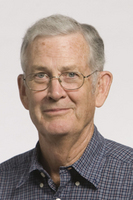

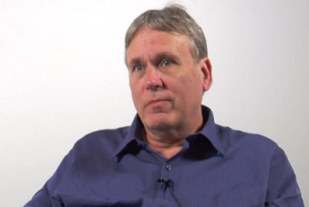 At the latest
At the latest 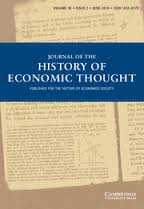 t still, at the very least, mistaken. For at least one part of the argument is true: economists, on the whole, are not interested in the history of their field and are not likely to be interested in it anytime soon. A bibliographic research I have undertaken over the past few years with my friend and fellow Pedro Duarte – forthcoming in the
t still, at the very least, mistaken. For at least one part of the argument is true: economists, on the whole, are not interested in the history of their field and are not likely to be interested in it anytime soon. A bibliographic research I have undertaken over the past few years with my friend and fellow Pedro Duarte – forthcoming in the 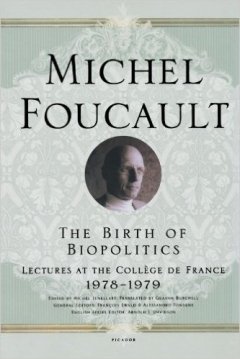 On the other hand, sociologists, historians, political scientists, and even management scholars are increasingly drawn to the history of recent economics. They do so because they feel that economics is an important part of today’s social, political and cultural environment and they want to understand it. Of course, there’s nothing new about this. Another friend and colleague of mine, Loïc Charles, has done work on 18th century economics with practicing historians, showing how economic thinking was intertwined with a lot of things happening at the time: international trade (including, most notoriously, slave trade), the colonization of the Americas, the French revolution, etc. But what is specific to the recent – postwar – period, is that economic thinking is not just mixed with other types of knowledge and practices, but increasingly, is THE knowledge which is used as a way to ground, to legitimize all knowledge and practices. This recent move toward the economization of every aspect of our society is what researchers have come to designate as “neoliberalism”, and this is the one of the main concepts that makes the study of postwar economics a possibly interdisciplinary venture, one that has a lot of chance to attract readers and create scholarship.
On the other hand, sociologists, historians, political scientists, and even management scholars are increasingly drawn to the history of recent economics. They do so because they feel that economics is an important part of today’s social, political and cultural environment and they want to understand it. Of course, there’s nothing new about this. Another friend and colleague of mine, Loïc Charles, has done work on 18th century economics with practicing historians, showing how economic thinking was intertwined with a lot of things happening at the time: international trade (including, most notoriously, slave trade), the colonization of the Americas, the French revolution, etc. But what is specific to the recent – postwar – period, is that economic thinking is not just mixed with other types of knowledge and practices, but increasingly, is THE knowledge which is used as a way to ground, to legitimize all knowledge and practices. This recent move toward the economization of every aspect of our society is what researchers have come to designate as “neoliberalism”, and this is the one of the main concepts that makes the study of postwar economics a possibly interdisciplinary venture, one that has a lot of chance to attract readers and create scholarship.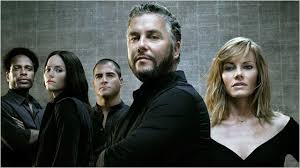 So, is it convincing? Well, let’s take for instance Béatrice’s
So, is it convincing? Well, let’s take for instance Béatrice’s 


 Last week, I spent a few days in the Dalton-Brand Research Room, at Duke University, skimming through
Last week, I spent a few days in the Dalton-Brand Research Room, at Duke University, skimming through 













